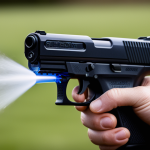Importance of Relaxation for Combat Sports Athletes
In the demanding realm of combat sports, understanding the relaxation benefits is crucial for enhancing both performance and recovery. By incorporating effective recovery techniques, athletes can significantly improve their well-being and longevity in their sport.
Relaxation methods have a profound impact on an athlete’s physiological state. These techniques help in reducing muscle tension, decreasing stress hormones, and improving overall cardiovascular health. Physiologically, relaxation leads to enhanced recovery, allowing athletes to train harder and more efficiently with less risk of burnout or injury.
Also to discover : Essential Kumite Drills for UK Karate Enthusiasts: Master Your Performance!
Moreover, the mental health benefits of relaxation for competitive athletes shouldn’t be underestimated. Regular practice can alleviate anxiety, bolster mental resilience, and improve focus during competition. This mental clarity is vital for making split-second decisions and maintaining composure under pressure.
Recovery techniques such as deep breathing exercises, yoga, and mindfulness practices play a pivotal role in an athlete’s well-being. Each method offers unique benefits that cater to different aspects of an athlete’s needs, from physical recovery to mental fortitude. By acknowledging the profound impact of relaxation, athletes can enhance their performance and sustain their careers with robust recovery strategies.
Also read : Unlock Peak Focus: Essential Techniques for Mental Sharpness in Extensive UK Karate Competitions
Therapeutic Massage and Manual Therapy
Therapeutic massage and manual therapy are critical components for athletes aiming at optimal recovery and peak performance. These approaches target improved muscle relaxation and accelerate physical recovery, enhancing overall athletic capabilities. Various types of massages, such as sports massage, deep tissue, and myofascial release, are tailored specifically to meet athletes’ needs. Each technique focuses on reducing muscle stiffness, promoting circulation, and alleviating injury-related discomfort.
Engaging in these therapies consistently can also foster intense mental relaxation, a crucial factor often overlooked. Therapists suggest that mental relaxation achieved through massage complements physical benefits, ensuring a more holistic recovery process. Following competitions, massaging sessions help athletes return to a balanced state, mitigating stress and fostering a state of calm readiness.
Expert opinions underline the necessity of integration post-competition to prevent muscle strains and enhance durability. Athletes who regularly incorporate massage into their routines report noticeable improvements in recovery times and a reduced incidence of injury. Consistent manual therapy sessions are not merely a luxury but a potent recovery tool, vital for athletes engaged in gruelling combat sports. By embedding these practices in their regimen, athletes support their physical and mental well-being, enabling sustained performance excellence.
Breathing Exercises for Calmness and Focus
Incorporating breathing techniques into a training regime can significantly enhance an athlete’s ability to relax and maintain concentration. Different methods, such as diaphragmatic breathing and box breathing, are effective for stress reduction and improving concentration. These exercises activate the parasympathetic nervous system, promoting a state of calmness crucial for both performance and recovery.
Proper breathing can delay the onset of fatigue by optimising oxygen delivery to the muscles, allowing for prolonged exertion with increased efficiency. This is particularly valuable in combat sports, where maintaining stamina and focus is essential during intense bouts. Structured routines, such as a daily practice of slow, deep breaths, can help athletes achieve a centered mindset, providing a competitive edge by enhancing resilience under pressure.
Recommendations for structured breathing routines include dedicating a few minutes daily to focused breathing exercises, progressively increasing duration and complexity as comfort with the technique grows. Consistent practice not only aids physical recovery but also fortifies mental resilience, providing athletes with tools to handle competition stress and fatigue more effectively. By prioritising these techniques, athletes can smoother transitions between training demands and maintain peak performance.
Mindfulness Techniques for Recovery
In combat sports, mindfulness practices play a vital role in enhancing both physical recovery and mental fortitude. Techniques such as meditation and visualization are highly effective for relaxation, ultimately improving mental clarity and focus. For athletes, achieving a state of mental calmness is essential for making precise decisions under pressure.
Meditation involves focusing on the present moment, which reduces stress and increases awareness. Visualization, on the other hand, allows athletes to mentally rehearse their performance, bolstering confidence and reducing anxiety. Both methods contribute to a robust mental state that supports enduring, formidable competition environments.
Various UK athletes have praised these practices, noting marked improvements in their focus enhancement and overall performance. For instance, many have witnessed decreased stress levels and improved concentration, translating into better results during competitions. Testimonies highlight how mindfulness can create a balanced mindset, fostering resilience and mental strength.
By dedicating time to these techniques, athletes can maintain a fresh, sharp mental outlook. Regular engagement in meditation and visualization not only refines athletic performance but also ensures longevity in the demanding field of combat sports, providing a competitive edge that complements physical preparation.
Incorporating Relaxation Techniques into Training Regime
The integration of relaxation techniques into an athlete’s training routine is essential for both performance and mental health. Consistent application of these methods in training integration enhances preparation strategies, allowing athletes to optimize their regimen.
Preparation strategies can include creating a structured routine that incorporates relaxation practices. This might involve scheduling regular sessions of yoga, mindfulness, and breathing techniques as part of the training. Consistency in practices is key; making these techniques routine aids in reducing stress and maintaining a state of balance.
Sports psychology plays a pivotal role in helping athletes understand the impact of relaxation. By reinforcing the mental aspect, athletes can prepare themselves not just physically but also psychologically for competition. Understanding the importance of mental recovery is crucial, as it contributes to overall well-being.
Success stories from multiple UK athletes highlight the benefits of structured relaxation strategies. Testimonials often cite improved focus, enhanced mental resilience, and a decrease in stress levels as key outcomes. These benefits underscore the practicality and necessity of incorporating relaxation methods into daily training regimens, setting a solid foundation for sporting excellence.
Yoga for Combat Sports Recovery
Incorporating yoga into the training regimen of combat sports athletes can lead to significant advances in both flexibility and injury prevention. This ancient practice offers numerous benefits, enhancing athletic performance by targeting key physical attributes crucial in combat sports.
Different types of yoga target various aspects of an athlete’s needs. For instance, restorative yoga focuses on gentle stretches and breath control, which aids in muscle recovery and relaxation. Vinyasa yoga, known for its dynamic flow, helps in improving balance and strength. Each style can be tailored to cater to specific training needs, offering diverse benefits from increased flexibility to enhanced mental focus.
Case studies highlight athletes who’ve experienced reduced injury rates and faster recovery times by incorporating yoga into their routine. These real-world examples underscore how consistent practice can lead to tangible performance improvements.
Practical tips for athletes include starting with beginner classes to learn proper techniques, gradually progressing to more advanced sessions. Incorporating yoga into a weekly routine can help in maintaining flexibility, reducing the risk of injuries, and improving overall athletic resilience. With varied styles available, athletes can select the yoga that best aligns with their personal recovery and performance goals.


